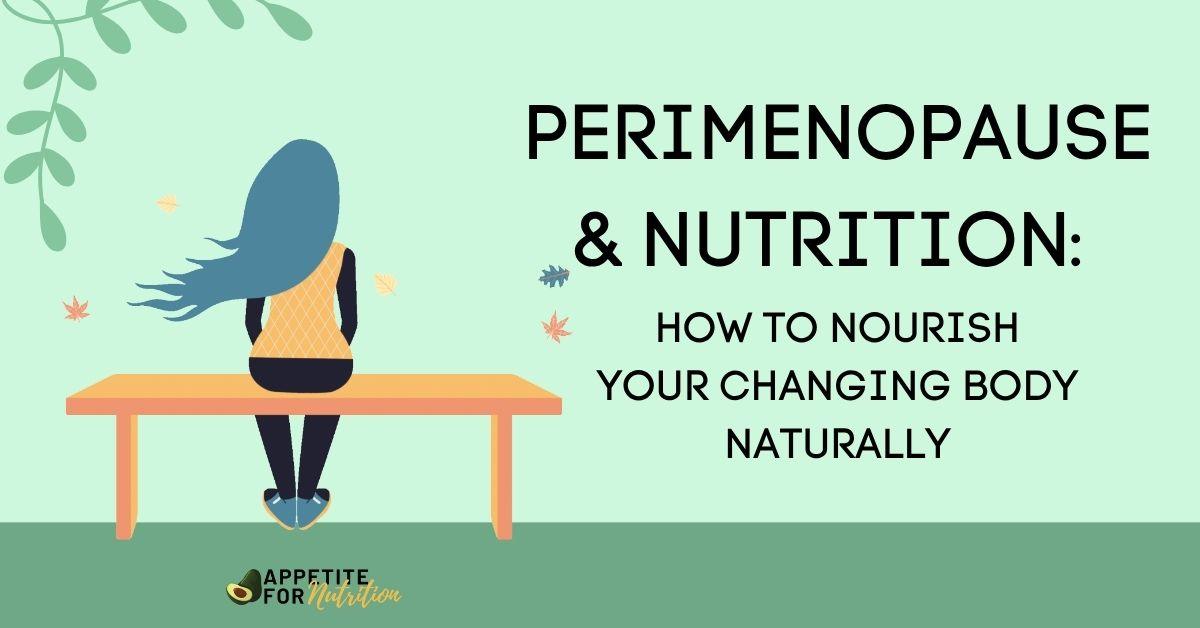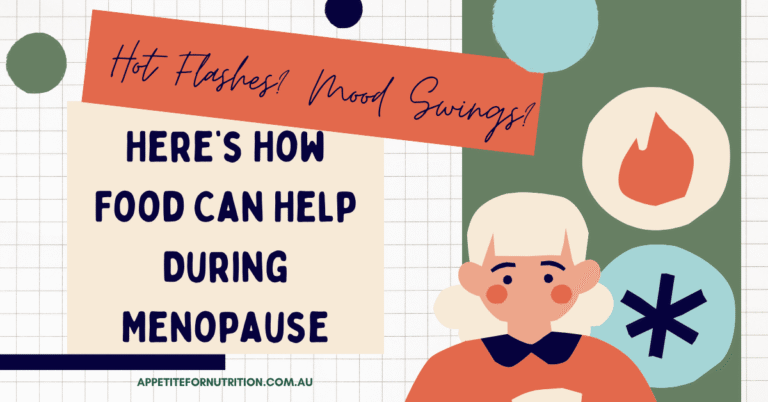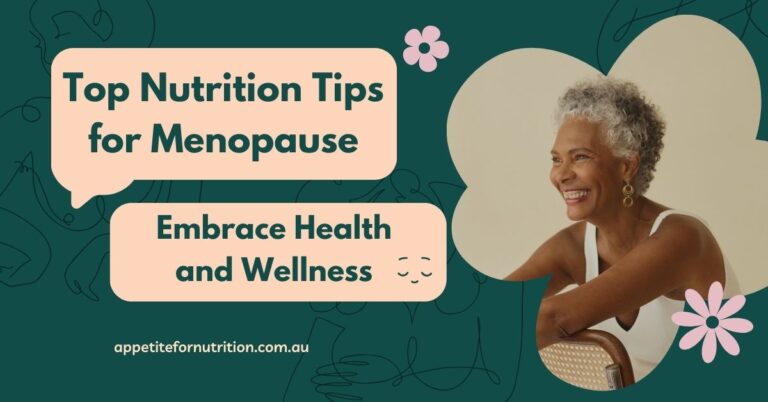
Perimenopause Nutrition: Evidence-Based Foods to Balance Hormones and Boost Energy
Understanding Perimenopause
Perimenopause is the transitional phase leading up to menopause, when oestrogen and progesterone levels fluctuate. This shift can affect energy, mood, sleep, metabolism, and body composition.
While these changes are natural, nutrition and lifestyle choices can significantly influence how you feel and function. Evidence-based nutrition helps reduce symptoms, protect bone and heart health, and maintain vitality.
At Appetite for Nutrition, our NDIS-registered dietitians specialise in women’s health and hormonal wellbeing — empowering women to manage this stage confidently through realistic, research-driven advice.
Why Perimenopause Nutrition Is Trending in 2025
Women’s health is a major focus in 2025. “Perimenopause nutrition” has become one of the fastest-growing wellness topics, driven by increased awareness of how diet can reduce symptoms like hot flashes, fatigue, and brain fog.
Trends highlight a move toward personalised nutrition and away from restrictive diets. Women are seeking tailored, empathetic support from qualified experts — not influencers or generic advice.
(Related reading: From Diet to Wellness: How a Nutritionist Can Change Your Life)
Nutrition Strategies That Make a Difference
Prioritise Protein for Muscle & Metabolism
Falling oestrogen leads to gradual muscle loss and reduced metabolism.
Aim for 20–30 g protein per meal, from foods like eggs, tofu, yoghurt, lentils, or fish.
Balanced protein intake improves energy, appetite control, and muscle tone.
Dietitian insight: Spreading protein across meals (not just dinner) supports lean mass preservation.
Support Bone Health with Calcium & Vitamin D
Bone density can decline sharply during perimenopause. Calcium and vitamin D work together to strengthen bones and prevent fractures.
Best sources: dairy, tofu, almonds, leafy greens, salmon, and fortified milks.
If sunlight exposure is limited, consider a vitamin D supplement after testing.
Include Anti-Inflammatory Fats
Omega-3 and monounsaturated fats improve cardiovascular health and reduce inflammation.
Add salmon, sardines, chia, flax, walnuts, avocado, and extra-virgin olive oil to meals.
Balance Blood Sugar with Fibre & Whole Foods
Fibre helps stabilise energy and hormone metabolism.
Choose whole grains, vegetables, legumes, and fruit while limiting refined carbs and added sugars.
(Also see: 10 Foods with Hidden Sugars You Might Not Be Aware Of)
Nurture Gut Health
A healthy gut microbiome supports oestrogen balance and digestion.
Include fermented foods like yoghurt, kefir, kimchi, and a variety of plant foods to feed beneficial bacteria.
Explore Phytoestrogens for Symptom Relief
Plant compounds such as soy isoflavones and lignans (in flaxseed and sesame) mimic mild oestrogen activity and may reduce hot flashes and mood fluctuations.
Regular intake of tofu, soy milk, or flaxseed can help balance hormones naturally.
Lifestyle & Supplement Considerations
Exercise: Strength training twice weekly for muscle and bone strength.
Sleep: 7–8 hours nightly to support hormone balance and energy.
Hydration: 2–2.5 L water daily to reduce fatigue and manage temperature changes.
Evidence-supported supplements:
Vitamin D (if low), omega-3, magnesium (for sleep and muscle recovery), and soy isoflavones.
Always discuss supplements with your GP or dietitian.
Feeling Supported Through Nutrition That Works
Perimenopause can be a confusing time, but with the right guidance, it becomes an opportunity to strengthen long-term health.
At Appetite for Nutrition, our accredited dietitians combine clinical expertise with compassionate care. We translate science into practical steps — not fads — to help women feel balanced and confident.
Click here to Meet our Women’s Health Team
Perimenopause isn’t a setback — it’s a new beginning. With expert nutrition and lifestyle support, you can feel energised, strong, and in control.
Book a consultation with one of our NDIS-accredited dietitians today to create your personalised perimenopause nutrition plan.
(Book here: Consult an NDIS Dietitian)
Frequency Asked Questions
Find quick answers to common questions
Our team of NDIS-registered dietitians helps clients make practical, evidence-based food decisions that fit their goals, lifestyle, and budget.
Focus on high-protein foods, omega-3 fats, and fibre-rich plant foods. Eggs, tofu, salmon, legumes, flaxseeds, and leafy greens all help regulate hormones and energy levels.
Yes — but the approach matters. Avoid restrictive diets. Instead, build muscle through resistance training, eat balanced meals with adequate protein, and reduce refined sugar.
Yes. Soy contains phytoestrogens that can mimic mild oestrogen effects in the body. Whole soy foods like tofu, edamame, or soy milk are safe and may reduce hot flashes.
They can help fill nutritional gaps. Vitamin D, omega-3s, magnesium, and soy isoflavones are commonly beneficial. Always consult a dietitian or GP for personalised advice.
A dietitian can tailor a nutrition plan to your symptoms and lifestyle, helping with fatigue, weight management, bone health, and hormone support — all based on research, not trends.
(Learn more or book a consultation with an Appetite for Nutrition dietitian to get started.)



